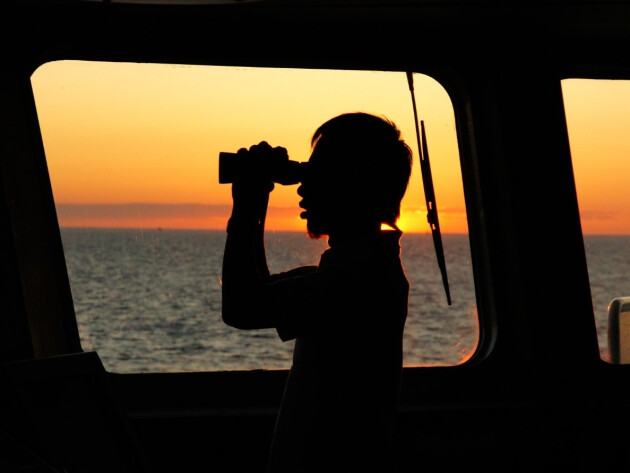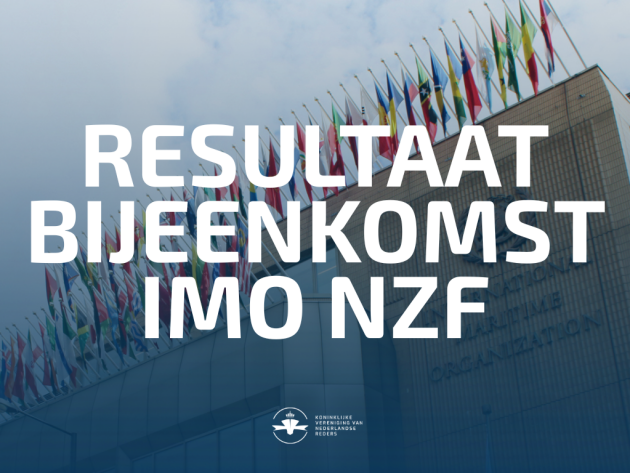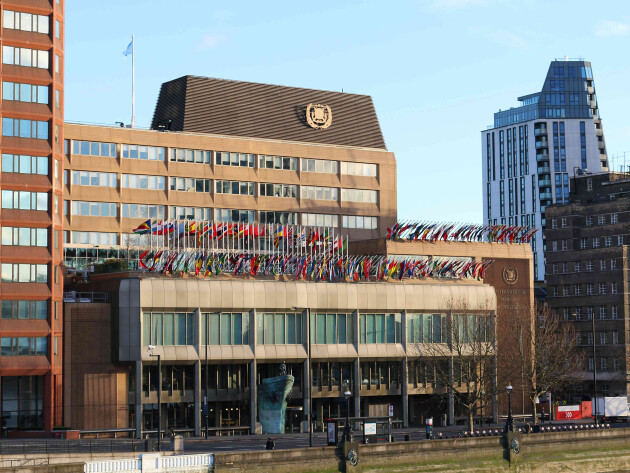
KVNR in talks with minister infrastructure and watermanagement
The maritime business environment
Yesterday, Annet Koster and Louis Stolper entered into talks with Minister Barry Madlener of the Ministry of Infrastructure and Water Management (IenW) on behalf of the KVNR. This ministry is responsible for, among other things, Dutch shipping policy and the ILT. As such, the ministry has a lot of influence on the business climate of Dutch shipowners.
The KVNR thanks the minister for a valuable meeting on the business climate, the Dutch flag and the energy transition. And looks forward to realising the ideas for improving the Dutch competitive position.
During the introduction, the conversation mainly focused on how the Netherlands can better compete with other countries, specifically when it comes to sailing under the Dutch flag. Because the share of Dutch ships in the world fleet has declined significantly over the past 10 years, indicating a deteriorating competitive position. As can be seen in the graph bellow.
A sea of opportunities!
The minister was interested in the opportunities to improve the Netherlands' competitive position, provided we can maintain our quality status. Good news for Dutch shipowners, as they would prefer to stay in the Netherlands and be able to compete internationally under the Dutch flag. Moreover, there are plenty of opportunities to improve the competitive position of the Netherlands, of which the Dutch Maritime Authority which is being set up will plays a major role.
Some concrete ideas to improve competitiveness include:
The extension of tax schemes to the offshore sector
Improve services and quality of the shipping register
More pragmatic policy with greater focus on international competitiveness
Attractive crew legislation for shipowners and seafarers
Establish a maritime innovation desk for innovations that do not fit within current regulations.
Some concrete ideas to improve competitiveness include:
The extension of tax schemes to the offshore sector
To strengthen the competitive position of Dutch shipowners in the offshore and dredging sectors, the Netherlands should bring offshore vessels fully under the tonnage tax regime and the maritime navigation remittance reduction.
This adjustment would contribute to a more level playing field with European competitors.
Improve services and quality of the shipping register
The service and quality of a shipping register is an important factor for the competitiveness of a flag state. The Netherlands has already improved considerably in this regard in recent years, but there is still room for improvement.
Digitalisation and account management play an important role here, and the Dutch Maritime Authority in formation can help.
More pragmatic policy with greater focus on international competitiveness
Being a country of establishment and a flag state, the Netherlands has a major influence on the international position of Dutch shipowners. Indeed, the country of establishment and the flag state determine the shipping company's business climate. This business climate can vary greatly per country and flag, while shipowners all compete in the same international market.
For shipowners, it is important that Dutch shipping policy has an eye for practice and the international competitive position of shipowners. This also requires a proactive and pragmatic government that understands the international competitive position of Dutch shipowners. It requires a government that dares to compete with other countries and actively looks for opportunities to distinguish itself from the rest.
Attractive crew legislation for shipowners and seafarers
For shipowners, it is important that they can find competent crews with they can compete on the international playing field. For seafarers, it is important that shipowners stay an attractive employer they would prefer to stay with for a long period of time.
Here, too, a flag state's manning legislation plays an important role. Since these can cause additional qualifications, nationality requirements, licensing procedures and impact on seafarers' wages.
Establish a maritime innovation desk for innovations that do not fit within current regulations.
Regulations can delay innovation. With an Innovation desk, the Netherlands Maritime Authority can provide a platform to efficiently and effectively help new ideas that challenge regulations.
An innovation desk also exists in Denmark, for example, a ‘Regulatory Future Lab’. With this, the Netherlands can encourage shipowners to bring innovations to sea under Dutch rule. At the same time, it helps shipowners lead the way with innovative solutions in sustainability and digitalisation challenges.



